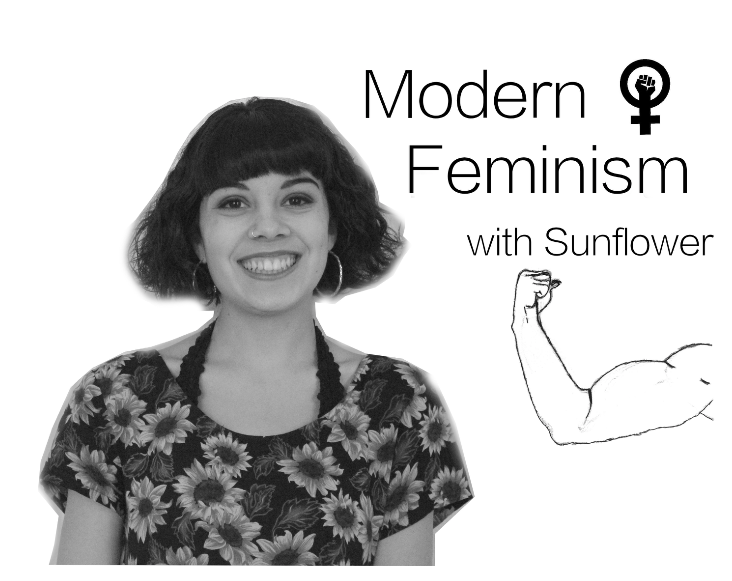Modern Feminism: Viola Davis and the “Stonewall” movie
October 2, 2015
Hello and welcome to the newest Clarion column, “Modern Feminism with Sunflower”! Some of our best writers (who consistently covered issues of equality) graduated last year. They dove head first into some pretty intense and important topics. I’d rather those kinds of articles not be lost from our publications this year, so my goal is to keep everyone informed and up to date, just as our awesome writers did last year.
Before we get into this month’s topics, I’d like to address the name of my column. Please don’t angrily question why the title includes “feminism” and not “equality.” Let’s just remember that by definition, feminism is “the belief that men and women should have equal rights and opportunities,” as said by Emma Watson during her “HeForShe” speech at a United Nations event. It is an all-encompassing term.
Viola Davis’ Emmy!
The 67th Primetime Emmy Awards aired Sept. 20 and made history. Actress Viola Davis (“How To Get Away With Murder”) was nominated for the award of “Outstanding Lead Actress in a Drama Series” along with Taraji P. Henson (“Empire”), Tatiana Maslany (“Orphan Black”), Claire Danes (“Homeland”), Robin Wright (“House of Cards”), and Elisabeth Moss (“Mad Men”). With a little help from the title, you probably guessed that Davis won. This award has been handed out every year since 1952 and more than 60 years later, Davis is the first woman of color to win. Davis accepted the award saying, “Let me tell you something. The only thing that separates women of color from anyone else is opportunity. You cannot win an Emmy for roles that are simply not there. So here’s to all the writers, the awesome people that are Ben Sherwood, Paul Lee, Peter Nowalk, Shonda Rhimes, people who have redefined what it means to be beautiful, to be sexy, to be a leading woman, to be black. And to the Taraji P. Hensons, the Kerry Washingtons, the Halle Berrys, the Nicole Beharies, the Meagan Goods, to Gabrielle Union: thank you for taking us over that line. Thank you.”
For me, this was the best moment of the entire show. While it may not be great that it took 63 years for a black woman to receive the award, it is great that, as Davis said, we are “over that line.” Here’s to many more women of color and diverse ethnic backgrounds being cast in leading roles and being awarded for their hard work.
“Stonewall” Movie
On June 28, 1969, a gay club within the Stonewall Inn, located in New York was raided by police. That night the crowd consisted of gays, lesbians, drag queens, and transgender people. These people fought back against the police and began the riots known as Stonewall which are often called the beginning of the LGBT pride movement. The rioting lasted for a couple of nights. Marsha P. Johnson was a transgender woman of color who was very well known during the riots. Within the research that I have done on the topic, it seems to be widely accepted that she was the one who threw the famous first brick and “started” the riots.
“Stonewall,” a movie retelling these events opens Sept. 25. The trailer and director have been the subject of a lot of backlash. The movie follows a young, white, gay man who moves to New York and participates in the riots. The trailer shows this young man (Danny, played by Jeremy Irvine) throw the first brick.
The director of the film, Roland Emmerich (“Independence Day”, “White House Down”) was recently interviewed on “Q,” a Canadian radio show broadcast on CBC Radio One. When asked why he chose to show the movement from (mostly) Danny’s perspective, he said, “Well, first of all, I am white and I am male and I am gay so it’s like naturally I can put myself into somebody[‘s situation] like Danny more than into a transgender black woman. That’s one factor. But it’s also like…it’s a very often thing used in movies.” He goes on to give examples of how “Titanic” has a young, white boy as the main character and how “Orange is the New Black” has a white woman telling her story. Although from what he’s saying, he is proving and perpetuating a need for more diverse actors/actresses in T.V. and film. He could have taken this opportunity to educate himself about the most marginalized people of this movement and begun to help change the frequentness of a white, cis person being the main character. He could have also improved his directorial skills by consulting with transgender people of color, learned from them, and been able to put together a movie that does not hide as much of their side of the story.
Some have decided to boycott the movie with the whitewashing of the trailer as their only reason. While a lot of what I’ve read and heard about this does not sit well with me, I don’t want to boycott a movie because of three minutes of footage out of 129. In the “Q” interview, both Emmerich and the interviewer said that the trailer is not the entirety of the movie, and that there is much more to the story than in those three minutes. I would like to see the movie for myself instead of forming premature opinions based on the trailer. I’ll be back next month with more opinions to share with you.
Thank you for reading!















Sandy Simpson • Oct 7, 2015 at 2:58 AM
Loved the article Sunflower! Very informative.